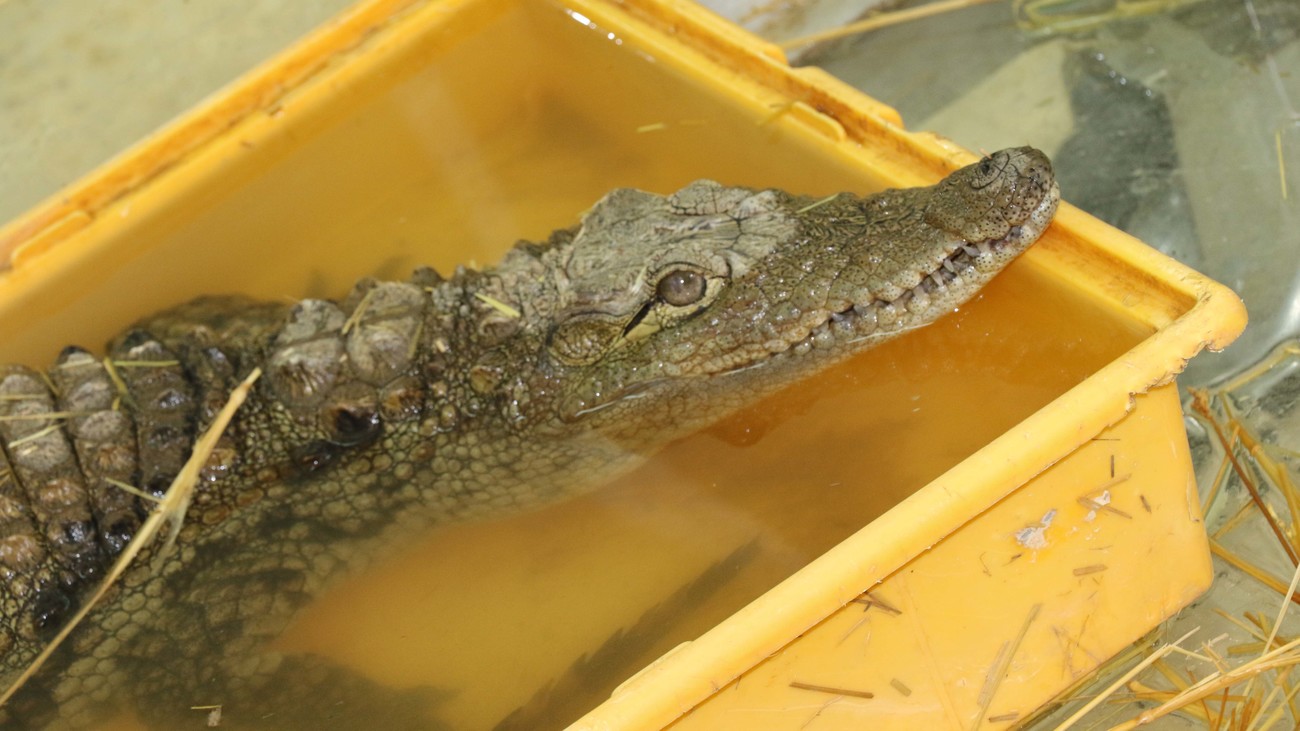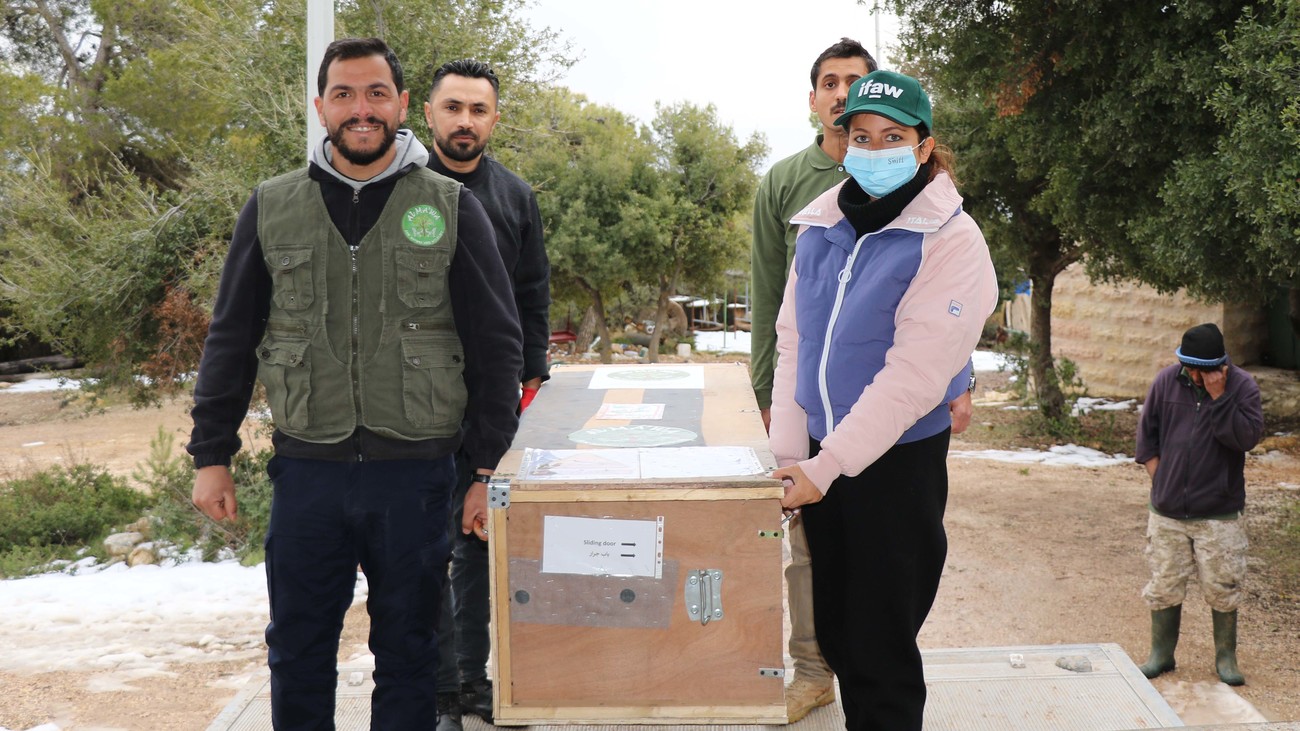Live Animals Seized in Trade - Global
Stopping smugglers is the first step, rescuing animals is the nextNile crocodile saved from exotic pet trade in Jordan makes its way back home
Nile crocodile saved from exotic pet trade in Jordan makes its way back home
Nile crocodile rescued from exotic pet trade to be released back to the wild

After surviving a stressful journey being smuggled into Jordan for the exotic pet trade, the confiscated Nile crocodile “Mahzooz” (meaning “Lucky” in Arabic) is currently in the process of making its way back home to the wild.
The initial confiscation process was due to close cooperation between the CITES Management Authority in Jordan (RSCN) and the Environmental Police Department, after officers came across the advertisement for trading of a smuggled crocodile through monitoring the Social Media channels. The Princess Alia Foundation/Al-Ma’wa for Nature & Wildlife, and the CITES management authority (The Royal Society for the Conservation of Nature – RSCN) worked together to lead the rescue operation.

Returning the crocodile to the wild
Fortunately, due to IFAW’s networking and relations around the globe, IFAW put a taskforce team together in Jordan—where the crocodile currently lives—and Sudan, where the crocodile will be released back. The taskforce will work together to transport, rehabilitate and release the crocodile—which could take up to two weeks starting today—in Al-Dinder Biosphere Reserve in Sudan at the Crocodiles Lake.
"The animals caught in pet trade are not the only ones who suffer; the concerned authorities do too as they end up covering costs they often cannot afford”. Elsayed Mohamed, the Regional Director at IFAW continues, “especially with the lack of resources and capacity, most animals either end up euthanised or trapped in captivity for the rest of their lives. It is truly tragic”.
IFAW, however, insists on giving this crocodile a different ending to its story and is using it to send a louder message : stop demand for exotic pet ownership. According to Elsayed, this crocodile is “lucky“, as many of the confiscated animals don’t make it this far especially since many tend to fall in the wrong hands of owners who have no idea how to take care of them, or are considered “not worth the trouble or cost” for concerned authorities, as the release of wild animals is generally a great challenge—scientifically and economically. Fortunately, crocodile genes often do not represent a challenge when releasing them back into the wild—contrary to many other wild animals.
All partners in this translocation process have arranged the needed permits, zoological and health tests and veterinary certificates to export the crocodile using a suitable cage with cargo from Jordan’s Queen Alia Airport, to Sudan. Once the crocodile arrives in Sudan, the Sudanese Wildlife Conservation General Administration will transfer the crocodile to a suitable shelter, in order to rehabilitate and carry out any necessary checks on the animal to confirm its readiness for the release. The release site is far away from urban areas and human settlements, thereby ensuring the safety of the crocodile and people, avoiding human-wildlife conflict in the long run.
Related content
Every problem has a solution, every solution needs support.
The problems we face are urgent, complicated and resistant to change. Real solutions demand creativity, hard work and involvement from people like you.